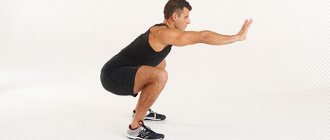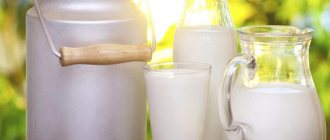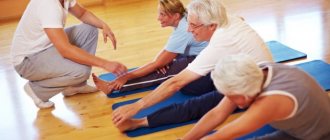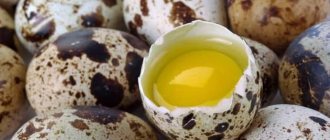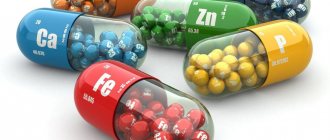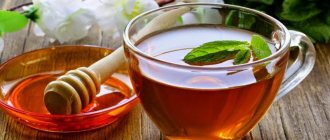Sports and gastritis
In general, sports for gastritis are useful, but a number of recommendations should be followed:
- Train on an empty stomach - at least 45-60 minutes before your next meal or no earlier than 1.5 hours after. Immediately after lunch, only a regular walk on foot is useful.
- During acute inflammation of the stomach or during exacerbation of chronic inflammation, it is better to refrain from intense exercise for several days. If your condition allows, you can simply take a walk or play checkers or chess with friends.
- Give up the sports diet for a while.
- When your stomach hurts, you should not even choose to watch sporting events if this can cause strong emotions and stress, for example, when your favorite hockey or football team loses.
- All exercises that lead to shaking or vibration of this organ are also contraindicated for gastritis - riding a bicycle on an uneven road, jumping on a trampoline, running, aerobics.
- Limit yourself to fairly quiet activities that will help relieve muscle spasms and relax the body.
Physical activity for gastritis, associated with lifting weights and tensing the abdominal muscles, is also undesirable.
Exercises for chronic gastritis
Before starting a set of exercises for chronic gastritis, you need to walk around the room for 3 to 5 minutes.
- Lie on your back, stretch your arms along your body. Touch your shoulders with your hands, open your arms. Breathe in. Then touch your shoulders again and place your arms along your body. Repeat the movement 5 – 7 times.
- We're lying on the floor. As you inhale, raise your knee to your stomach. Let's exhale. We return to the starting position. We repeat the movement 5 – 7 times with each leg.
- Lying on your back, bend your legs at the knees. Then we spread our knees and move them, returning to the starting position. We repeat the movement 10 - 12 times.
- We turn on the right side. Inhale and pull the knee of the left leg towards the stomach, and move the left arm back. We exhale and come back. Repeat the exercise 8 – 10 times. Turn on your left side and repeat the set of movements.
- We get on all fours. We take the leg back and return it. Repeat the exercise 5 – 7 times.
- We continue to stand in the previous IP. We raise our right leg and left arm and lower it. Repeat the movement with the other leg and arm respectively. Perform the exercise 5 – 7 times.
- We sit down on a chair. They wrapped their hands around her waist. We perform body turns left and right. We repeat the exercise up to 10 times.
- We continue to sit on the chair. Raising your arms in front of you, raise your leg. We do the exercise with the other leg. Repeat the exercise 5 – 7 times.
- We stand with our feet shoulder-width apart and arms out to the sides. We try to turn around to see the wall behind us. You need to make sure that your heels do not come off the floor. Inhale and return to the starting position. Repeat similarly in the other direction. The exercise is performed 5 – 7 times.
- We're standing. Feet shoulder-width apart, arms spread to the sides. We bend over and touch the toe of our left foot with our right hand. The left hand rises up at the same time. Repeat similarly with the other hand. The exercise is performed 5 – 7 times.
It is recommended to start exercising at least one and a half hours before or after meals.
Exercising with gastritis
Running is the most popular as a morning warm-up, but with gastritis it can only be done if there is no exacerbation of the disease and there is no pain, weakness, or increased fatigue. In this case, you must definitely listen to your body and avoid excessive stress:
- It is better to run at an average pace and for a relatively short time;
- It is advisable to postpone marathon distances until better times.
In case of chronic gastritis without exacerbation, running, like walking, has a beneficial effect on the state of all body systems, increasing mood, endurance, performance and being an excellent means of preventing cardiovascular diseases. Walking has a beneficial effect on the functioning of the digestive system, promoting the movement of food in various parts of the intestine.
During remission
During remission, the range of exercises can be significantly expanded by including:
- rocking the press;
- gymnastics with dumbbells;
- training in the gym.
But even during this period, it is necessary to remember that all exercise should be of moderate intensity and not harm health. Those sports that may involve strong impacts to the abdominal area (for example, various types of wrestling) or a sharp increase in intra-abdominal pressure (weightlifting) are contraindicated.
Therapeutic gymnastics is especially useful - a set of specially selected exercises that help normalize the neurohumoral regulation of digestive processes, motor and secretory functions of the stomach and improve blood circulation in this area. Before starting exercise, if you have gastritis, you should consult a doctor, because for different types of stomach inflammation, different physical exercises are indicated:
- With increased acidity - slow pace, monotonous repetitions, relaxation exercises are required.
- For low acidity, moderate-intensity exercises for 30 minutes with cheerful, upbeat music and a minimum number of repetitions of movements, abdominal pumping and abdominal breathing are allowed.
During exacerbation
About 10 days should pass from the moment of exacerbation of the disease to the first exercise. Until this time, as the pain subsides, you can simply move and take walks. The load is gradually increased, but they always monitor their well-being: if their condition worsens, stop training .
Useful activities
If you approach training adequately, without overloading the body, then you can engage in almost any type of physical activity.
Before this, you need to consult with your doctor, who will give recommendations on adjusting the intensity and frequency of training, as well as provide guidance on proper nutrition during this period.
For gastritis, the following types of physical activity are recommended:
- Moderate swimming 2-3 times a week;
- Health path is one of the areas of physiotherapeutic treatment, in which the body receives dosed physical activity in the form of walking along special routes. It is allowed at any age, while gently developing endurance. The functioning of the cardiovascular and respiratory systems also improves, the basal metabolism intensifies, and nervous activity is normalized;
- Race walking is another type of health-improving technique based on simple walks;
- Short runs (30-40 minutes with breaks) jogging on flat terrain;
- You can also play any sports games at an amateur level (that is, not as a professional activity). Badminton, volleyball, friendly football or basketball matches are quite popular among patients;
- Do not underestimate the benefits of physical therapy (PT). A set of training activities in this case is compiled by a rehabilitation doctor (or physiotherapist) in accordance with the exact diagnosis and direction of the gastroenterologist;
- Yoga, qigong and other types of eastern practices theoretically not only strengthen the body, but also stabilize internal balance. In reality, this can be felt in the form of normalization of neuropsychic activity (improved mood, increased resistance to stress).
Recommendations for athletes with gastritis
It is advisable to visit a fitness gym if you have gastritis during remission of the disease. At the same time, depending on your general well-being, you either completely exclude power loads on the abs, or conduct moderate-intensity training. Without consulting a doctor, lifting heavy objects - weights and barbells, as well as various martial arts - is strictly prohibited.
As for sports nutrition, the following are contraindicated for gastritis:
- Supplements that increase acidity or act as an irritant to the stomach walls are amino acids, especially branched chain amino acids.
- Keratin should also be taken with great caution, preferably in small portions and only after meals.
Among gainers, you can use those that contain few monosaccharides and flavors, but proteins for gastritis do not cause any special side effects when consumed.
Sports and any physical activity strengthen the human body, it is difficult to argue with this dogma, but how does sports training affect such a disease as gastritis? Some experts insist that in case of stomach pathologies, in particular gastrodiseases, it is not recommended to engage in strength sports, as well as those aimed at increasing endurance.
How does sports training affect stomach ulcers and gastritis? What happens in the body during this period and how timely is yoga and other exotic activities during illness?
It must be admitted that almost every second athlete involved in intense sports, while leading an unhealthy lifestyle, suffers from ailments associated with gastrointestinal disorders. It should be noted that the simplest workouts do not affect the body to such an extent.
Today we will try to highlight in the article those sports that are indicated for gastritis, and moreover, contribute to a speedy recovery.
Sports and gastritis: compatibility
What happens in our complex mechanism and internal systems with increased activity of the body? It must be said that not all workouts have a beneficial effect on the stomach if it is affected by ulcers or has erosions. But let's first focus on the moments of positive influence.
- No one will argue with the fact that proves that physical activity helps improve the functioning of the entire digestive system. Regular exercise relieves a person from unpleasant symptoms associated with stomach disorders: heartburn, constipation, cramps and flatulence. This occurs due to good blood circulation and its access to the cells and tissues of the internal organs.
- Sport normalizes secretory motility, and this is very important for the digestive process. A person feels relief if he does simple exercises every day in the morning, before breakfast. Thus, the entire internal mechanism is launched.
- With Helicobacter pylori infections, pain inside the stomach decreases if the body's activity is increased. Gentle training enhances the functioning of the immune system and protective properties, so pathogenic bacteria die, thereby easing the symptoms of the disease. The Helocobacter bacterium is not compatible with strong immunity.
- The trophism of the stomach is restored with daily sports activities, the condition improves, and the signs of the disease become insignificant.
- Due to the flow of blood to the digestive system, erosions and ulcers heal. The body can heal itself if you help it.
- Among other things, breathing in the diaphragm improves, which means the supply of oxygen to the cells becomes much stronger, and regeneration of cellular structures occurs.
What sports are indicated for gastritis and ulcers to relieve symptoms and as an addition to the main treatment:
- Sure, you can go swimming;
- This kind of race walking is useful for any gastrointestinal diseases;
- A light jog or exercise on a tennis or badminton court is very helpful for erosive diseases;
- You can skate or play football;
- Yoga and stretching also promote recovery.
Sport as a disease prevention
Sport can improve a person’s overall health, which is why it prevents many diseases. Speaking about this disease in particular, it is worth noting that the most useful exercises will be aimed at developing the abdominal muscles. Physical education for gastritis helps improve the elasticity of the epithelium of the stomach and all organs, normalizes blood circulation in organs and tissues.
When selecting exercises for daily activities, it is necessary to take into account the level of acidity for gastritis. Exercising at a fast pace reduces stomach acidity, so you should start training at a slow pace and then move on to a faster pace. If the acidity level is low, classes should be held at an intense pace, but with a small number of approaches. You can exercise for this type of gastritis for no more than 30 minutes.
In addition, properly selected physical exercises prevent the development of obesity, which negatively affects not only the stomach, but also other organs, the work of which becomes very difficult with increasing body weight.
After any sports activities, the body must be given time to recuperate - in no case should you “drive yourself” with training.
It is also necessary to remember that in addition to sports, when preventing gastritis, you need to monitor the foods and drinks you consume - you must completely avoid fast food, fatty, salty, and spicy foods. If you follow all the above recommendations, you can prevent the development of the disease or treat it in the early stages.
The information on our website is provided by qualified doctors and is for informational purposes only. Don't self-medicate! Be sure to consult a specialist!
Author: Rumyantsev V. G. Experience 34 years.
Gastroenterologist, professor, doctor of medical sciences. Prescribes diagnostics and carries out treatment. Expert of the group for the study of inflammatory diseases. Author of more than 300 scientific papers.
For some people, sport is a part of life. Sometimes, when a number of diseases occur, it is necessary to limit physical activity. For people who work professionally in the field of sports, such news is like a death sentence. Sport for professionals is life. It happens that patients do not understand the complexity of the situation, increasing the risk of complications. Stomach ulcer is an insidious disease, it belongs to the list of diseases when physical activity is limited, although not completely.
Initially, you need to understand the nature of the disease. An ulcer is a chronic disease that tends to recur. The main sign of an ulcer is the appearance of small ulcers on the walls of the stomach. Lesions are difficult to treat. There are a number of known causes of the disease:
- A person regularly experiences stress;
- Poor nutrition;
- Regular alcohol abuse and smoking;
- Failure to observe basic hygiene.
Sports activities contraindicated for gastritis
Along with active types of exercise that are beneficial for gastritis, there are also those that negatively affect the healing of the gastric mucosa.
- Martial arts are contraindicated for gastritis, since blows to the abdominal area can cause aggravation or other negative consequences. You should not take risks either during a period of remission or during an exacerbation stage; this sport is not friendly with gastroenterology.
- If a professional athlete involved in athletics or long-distance running does not have gastritis, this is very rare. Usually 60-70% of this group are diagnosed with gastritis to a greater or lesser extent.
- Weightlifters must be especially careful, because the abdominal muscles and lower parts of the body are subject to enormous stress. Remember the moments when a heavy load or shopping bag aggravated your illness and began to cause pain. The same thing happens when lifting a barbell, but in an even more pronounced form. Weightlifting with gastritis is canceled.
- All extreme sports in which a fall, unexpected blow, or injury may occur are contraindicated for people suffering from gastrointestinal diseases.
Physical exercise for gastritis with elevated pH levels
Types of physical exercises are performed slowly; the pulse when palpated should not exceed 120 beats per minute.
- We sit on the floor, begin to clench our hands and feet, then unclench them. You need to repeat the action 10 - 40 times.
- The movement is performed while sitting. Turns the body left and right. With each turn, you need to open your arms, return to the starting position, and close them. The exercise is performed 3 – 6 times.
- We continue to sit, slowly raise our leg and lower it. Make sure your legs are straight. Do it one by one. Repeat the exercise 3 – 6 times.
- We continue to sit, legs spread as wide as possible. We bend over to the leg, reach for our toes with our hands, and rise back up. Same with the second one. Repeat 3 – 6 times.
- We sit on the floor, legs extended straight. Bend your leg at the knee, bring it closer to your chest, and slowly lower it back. We repeat the exercise with the second leg. Do 3 – 6 approaches.
- Now use your imagination and take a position as if you were sitting on a chair. This is the starting position. Squat down, then return to the starting position. Repeat the exercise 4 – 12 times.
- We sit down and relax the ankle muscles.
- Now we lie on our backs and bend our legs. We stretch forward, put our hands behind our heads. Perform the exercise 4 – 6 times.
- Turn onto your side. We take our leg back and at the same time raise our arm up. We repeat the movement from 3 to 8 times.
- We return to the back. Raise the straightened leg up and slightly to the side. We do the exercise 3 – 8 times. We change the leg.
- Get on all fours. Raise your right leg and left arm. Replace the arms and legs accordingly. Do 3 to 8 times.
- Walk in place for a maximum of 2 minutes.
- We sit down and put one hand to the chest, the other to the stomach. We breathe slowly.
What to consider during training in various stages of the disease
Light exercise and regular sports activities are quite compatible with gastritis. But no one has canceled the rules of conduct for diseases of this kind. During an exacerbation, you must be especially careful and follow the following requirements:
- You should wait out the acute period and not train. The period can vary from a week to two. After the painful syndrome subsides, classes should begin with minimal load so as not to cause a relapse;
- Strength loads after even two weeks are prohibited and are undoubtedly considered a “taboo”. It is fashionable to include CrossFit here.
What can replace the most active activities in the acute stage, so as not to stop physical activity and not lose shape?
- If you are not too tormented by pain, turn your attention to yoga or other eastern practices; they perfectly relieve stress, calm you down and normalize the functionality of digestion. The most useful poses for gastritis are: cobra, plow, camel, locust. For peptic ulcers and during remission, such a treatment complex is very timely.
- In the acute stage, it is absolutely not necessary to lie down and wait for recovery like manna. It has been proven that walking for half an hour will contribute to recovery, gentle aerobics is also not prohibited, and gymnastics at home will help prolong the period of remission after an acute period.
Recommendations for sports activities during gastritis
Scientists conducted experiments on the dependence of the regime of gastric juice secretion on the intensity of physical activity. Experiments have shown that the degree of activity and load affects acidity, which is why the following tips should be followed:
For patients with gastritis with high acidity it is recommended:
- Perform exercises smoothly and slowly without jerking;
- Warming up will help avoid a sharp and intense jump in acidity;
- Next, you should alternate strength exercises with relaxing techniques, this directly affects the secretion of the aggressive environment of hydrochloric acid. A good tip is to alternate strength sets with yoga poses;
- A highly repeated regimen has a very beneficial effect on the patient’s health, even if the training continues for a long time;
- Pilates and yoga are ideal options for physical activity for high acidity.
Excellent advice was received from experts; they recommend that people with gastritis conduct exercises 30 minutes before lunch, just at this time hydrochloric acid does not have a high level in the gastric juice.
In the evening, it is better not to provoke a stressful state of the body by training, which needs a full night's rest.
Patients with low acidity can use the following tips:
- Classes should be held before lunch, the earlier the better. After training, be sure to drink a glass of mineral water without gas content;
- The repetitions of the exercise should be reduced, and the pace and intensity reduced.
Sports nutrition
Sports nutrition is food supplements taken during sports to replenish the reserves of micro- and macroelements, providing the body with protein, replenishing the athlete’s energy resources.
There are several types of these nutritional supplements:
- protein;
- gainers;
- casein;
- amino acids;
- creatine
Protein is taken to meet the daily protein requirement needed for muscle growth and strengthening. Available in whey, egg and soy.
The first two types are considered the highest quality and are better absorbed by the body. Soy protein is low cost due to the use of cheaper raw materials (soy). If you have gastritis, you should not use it , as it is difficult to digest and causes bloating and flatulence.
Gainer is a protein-carbohydrate mixture used to increase total weight. Often the composition includes monosaccharides, which cause a sharp release of insulin, which irritates the gastric mucosa.
Casein is also a type of protein. Made from goat milk. It is taken at night, as it takes longer to digest due to slow breakdown, suppresses appetite and has a pronounced anabolic effect. Not recommended for gastritis with low acidity.
Amino acids are nutrients found in all proteins. The body uses them for its own growth, repair, strengthening and production of various hormones, antibodies and enzymes.
With high acidity, taking amino acids is not recommended, as this can cause irritation of the gastric mucosa and lead to inflammatory processes.
Creatine is a sports supplement for increasing strength, muscle mass and short-term anaerobic endurance.
It is a nitrogen-containing carboxylic acid that is involved in energy metabolism in muscle and nerve cells. Creatine may cause gastrointestinal distress .
Its symptoms are abdominal pain, nausea, flatulence and diarrhea. Most often, digestive disorders occur during the loading phase, when large doses of creatine are taken. Digestive problems may be associated with poor purification of the substance, so you should choose a quality product. To avoid its side effects, creatine has been created in micronized, capsulated and liquid form.
There are many disputes and conflicting opinions regarding the need to take sports nutrition and its safety for the body . As a rule, sports nutrition contains the same substances that usually come to us with food, but in a higher and more concentrated dosage.
If gastritis is diagnosed, the possibility of taking sports nutrition is not excluded.
On our website: Anacidic gastritis - what is it? Causes, symptoms and treatment
Special exercises for those who suffer from stomach ulcers
Any complex exercise such as crunches or abdominal swings is not always allowed for stomach ulcers, since it can aggravate the situation and cause a relapse of the ulcer. It is best not to use such exercises at all.
“Abdominal vacuum,” known for its benefits during the postpartum period, is also on the list of exercises prohibited for ulcers. This is explained by the fact that such manipulations can provoke pain and deterioration of well-being due to the strong blood flow to the gastric walls. Despite the fact that the exercise is considered static, it would not hurt to consult a doctor.
Abdominal pumping exercises aimed at maximizing blood flow are useful only during the remission period; the rest of the time, this is fraught with severe pain, and in some cases, bleeding.
Such a serious provocative moment includes a duodenal ulcer. You can pump up your abs only after a significant period of time, after the ulcer has completely healed. And classes and training two weeks later, without fanaticism and extra effort.
Any supplements used by professional athletes are excluded in case of aggravated ulcers. Sports supplements negatively affect the gastric mucosa and provoke the appearance of ulcers and erosion in the stomach.
If the ulcer is removed through surgery, normal lifestyle and exercise can be resumed after a rehabilitation period, which can last from 6 to 8 months. Weight lifting can be allowed after three months, not earlier, the weight should not exceed five kilograms.
Sport as a prevention of gastritis
Physical activity is the way to prevent many chronic diseases. The risk of inflammatory processes is significantly reduced, but the load should be adjusted based on the degree of the disease and the patient’s well-being.
- Physical education and light activity in the form of short jogging, Nordic walking, game sports will help you quickly overcome the disease and “get back on your feet”, returning to your normal life;
- You should follow a daily routine and an appropriate diet, on which recovery largely depends. Products must be of high quality, fresh, and meet all dietary requirements;
- Strong loads increase gastrointestinal motility and normalize the digestive tract;
- Hours of proper rest for the body after activity is a prerequisite for proper treatment for people with gastritis.
The benefits of sports for gastritis
Before talking about cases where sports activities are contraindicated, it is necessary to dwell on the beneficial effects of sports for gastritis and peptic ulcers:
- By stimulating blood circulation, exercise improves the functioning of the gastrointestinal tract. With regular exercise, you can get rid of symptoms such as heartburn, cramps, constipation and flatulence.
- Regular exercise normalizes secretory and motor functions, which contributes to the regulation of digestive processes
- People who suffer from Helicobacter pylori infection during regular but gentle exercise notice that the pain becomes rare and less severe. Doctors believe that perhaps the reason lies in the fact that fitness enhances the immune-protective function of the body. But it is known that good immunity protects a person from the active activity of Helicobacter pylori.
- Regular exercise helps restore trophism in the gastric mucosa.
- A rush of blood to the digestive organs allows ulcerations to heal faster.
- With the help of exercises, you can improve deep diaphragmatic breathing.
Therapeutic exercises: the leading task for ulcers
Therapeutic exercises for ulcers become an effective assistant. If we remember that the provocateur of the disease is a constant stressful state, exercise therapy for gastric ulcers will not be superfluous, it will help defeat the main enemy of the body. As a rule, breathing exercises are prescribed by the attending physician, and the exercises are performed under the guidance of a doctor. The leading condition is that the patient must be on the mend, then it is allowed to perform therapeutic exercises.
Properly selected physical exercises for stomach ulcers help normalize the nervous system and digestion. If the exercises are clearly beneficial, a competent doctor should prescribe general strengthening exercises only after a complete examination of the patient.
The main task of therapeutic gymnastics:
- Bring neuropsychic tone back to normal;
- Improve the recovery process of the gastrointestinal tract, blood circulation and breathing;
- Prevent the formation of adhesions;
- Strengthen the condition of the body;
- Improve the condition of muscle tissue, regulate metabolism;
- General prevention of complications that renew the appearance of ulcers.
Doctors have different opinions regarding playing sports: the first insists that physical activity during an ulcer cannot be stopped, the second is against the active method. Opponents come to a consensus regarding therapeutic exercises: exercises are useful and necessary for complete recovery.
What sports are contraindicated for gastritis and ulcers?
- For diseases of the gastrointestinal tract, it is recommended to completely abandon martial arts. Any blow to the stomach can aggravate the disease and lead to negative consequences.
- Doctors warn that professional sports with gastritis and ulcers are contraindicated. You should not, for example, engage in professional athletics. Studies have shown that 50-70% of professional runners suffer from gastritis.
- Weightlifting for gastrointestinal diseases is also not recommended. Most weight-bearing exercises put a lot of strain on the abdominal muscles and place excessive stress on them, which can aggravate the disease. Remember that even a bag that is too heavy can provoke a relapse of the ulcer, let alone a barbell.
- It is necessary to exclude sports that overly strain the abdominal muscles and threaten falls and injuries (for example, mountaineering).
Benefits and contraindications
Healthy running for gastritis will be beneficial; while running, the digestive functions of the organs improve. Before going for a run if you have gastritis with a high level of acidity, it is useful to drink oatmeal jelly. Thanks to the drink, the walls of the stomach are coated, a film is formed, which helps lower the acidity level. If the acidity level is low, it is acceptable to drink half a glass of water. Acid release will occur more intensely. It is also useful to go for leisurely walks after meals. Swimming, skating, skiing, and playing volleyball are allowed. Engaging in such sports develops physical abilities and improves the psychological state of the body.
A set of exercises for gastritis has contraindications. Follow the rules of execution.
Do not take part in health-improving physical exercises when an ulcer appears, especially during an exacerbation. Severe nausea and frequent vomiting are a contraindication to any type of physical exercise. If severe pain appears in the stomach area, you should not take up therapeutic exercises. If bleeding is observed or the disease occurs with stenosis, it is worth avoiding exercise therapy. You need to exercise when the digestive system is stable and there is no pain in the stomach.
During physical exercise, energy increases, the body is saturated with vitamins, and the level of acidity in the gastrointestinal tract is restored.
Features of training depending on the stage of the disease
Gastritis, ulcers and sports are compatible concepts. However, it should be remembered that during the period of exacerbation of diseases of the gastrointestinal tract, it is necessary to follow some rules:
- During the acute period of gastritis and ulcers (the first 7-14 days), any training is excluded. Only after the painful syndrome has subsided can you gradually return to regular sports activities.
- For about 2 weeks after an exacerbation, you cannot do strength exercises; the popular CrossFit is also considered taboo.
- During an exacerbation, if the pain is not severe, you can pay attention to yoga. Eastern practices relieve stress and stimulate the digestive tract. Among the asanas it is recommended to practice: cobra pose, plow pose, camel pose. One of the best techniques for gastritis is the yogic locust pose. This complex, consisting of several asanas, is recommended to be performed during the period of remission of gastritis and peptic ulcers.
- You shouldn’t ignore sports if you have a stomach ulcer. Scientists have proven that even during an exacerbation of the disease, walking is very useful. Several times a week, take yourself a half-hour walk at a steady pace. Experts have found that such aerobic exercise in a gentle mode is useful for gastritis and ulcers. It helps prolong the remission stage of gastrointestinal diseases.
What to consider when exercising
Few people who suffer from gastritis know that the recommended degree of exercise and intensity of exercise depends on the type of hydrochloric acid secretion. It has been proven that serious training in a fast mode leads to a decrease in stomach acidity. Therefore, regardless of the stage of the disease, it is recommended to adhere to the following advice from physiologists.
People with high stomach acidity are advised to exercise as follows:
- All exercises are performed at a slow pace (smoothly and without jerking).
- The intensity increases gradually, and at the end of the session it also slowly decreases (be sure to do a cool-down before stretching). For example, on glute day, you do squats and lunges with free weights. This means that before stretching you need to repeat all the exercises, but without sports equipment.
- With increased secretion of aggressive hydrochloric acid, it is recommended to alternate intense strength training with relaxing techniques. Between approaches, we recommend doing several yoga asanas.
- We also draw your attention to the fact that in case of high acidity you should exercise in a multi-repetition mode. However, long-term activities are allowed.
- An ideal training option for people with increased secretion of hydrochloric acid would be fitness on a Swiss ball or home Pilates classes. We also advise you to think about yoga.
For patients with reduced secretion of hydrochloric acid, it is recommended:
- Exercise for no more than half an hour and always in the first half of the day. It is advisable to drink a glass of still mineral water after training.
- People with low stomach acid should exercise at a more intense pace and with fewer repetitions.
Physical exercise for gastritis with low acidity
- We stand with our feet shoulder-width apart. Raise your leg back, arms up. Make sure your leg remains straight. We repeat the exercise 3 – 4 times. We change the limb.
- We're standing. We turn the body to the left, then to the right. When turning, open your arms to the sides, and when returning, close your arms. Do the exercise 3 to 4 times.
- We continue to stand. We bend left and right, 3 to 4 times.
- We're standing. We lean forward. You need to do 3 - 4 tilts.
- We're standing. We take a deep breath and hold our breath for a while. Let's exhale. Repeat 5-6 times.
- We sit on the floor. From behind we rest well on our hands. Legs extended. We bend at the lower back. We repeat the exercise 4 – 6 times.
- We sit on the floor. Raise your leg and make sure you are straight. We do the exercise 4 – 6 approaches.
- Exercise "bicycle". Completes in no more than 30 seconds.
- We stand up, inhale deeply, hold our breath and finally exhale. The exercise is repeated 5 – 6 times.
- Now we lie down on our stomach. We bend our arms. Repeat the movement 5 – 10 times.
- We stand with our feet shoulder-width apart. Let's start squatting. Do 5 – 15 times.
- We stand with our feet shoulder-width apart. Raise your leg 90 degrees. Keep it straight. Lower it. Repeat the movement 4 to 6 times with each limb.
- We sit on the floor near the wall. We rest our feet against the wall. Lean back. Repeat the exercise 4 – 5 times.
- Sitting on the floor, place one hand on your chest and the other on your stomach. Slow down your breathing.
- We get on all fours. Raise your left arm and right leg. We lower it. Repeat the exercise with the other arm and leg respectively. Perform the exercise 3 – 8 times.
- Let's get up. Jump up high. You need to do 15 – 60 small jumps.
- Time yourself for 2 minutes and perform the steps on the spot.
- Breathe deeply.
The exercises are performed in order in the specified sequence. The exercises begin slowly, and the pace increases during exercise.
Abdominal exercises for stomach ulcers
It is difficult to answer the question whether it is allowed to pump up the press with gastritis and ulcers, since it all depends on the stage of the disease. If you have been diagnosed with an exacerbation of gastritis or a recurrence of an ulcer, then, of course, various variations of twisting and the “Fold” exercise are contraindicated.
Separately, it is necessary to say about the popular “Belly Vacuum”. Although this exercise is more gentle and is recommended even for women after childbirth, it should not be performed during exacerbation of gastritis or ulcers. The fact is that the “vacuum” ensures maximum blood flow to the organs of the gastrointestinal tract, which quite often causes pain. And even if your health does not worsen when performing this static exercise, we still recommend consulting with your doctor.
Remember that the flow of blood to the organs of the stomach and intestines is good during the period of remission. In the acute stage (even if you suffer from severe pain), abdominal training is contraindicated. With a stomach or duodenal ulcer, they can even provoke bleeding. You can start playing sports without fanaticism 1-2 weeks after the start of treatment (depending on how you feel). Leave abdominal pumping exercises only for the period of complete healing of the ulcer.
Unpleasant sensations localized in the upper abdomen may indicate other problems:
- neoplasms;
- kidney or bladder stones;
- spinal disc herniation.
How long should you not exercise after treatment?
If, however, worsened gastritis or an ulcer makes itself felt, then it is necessary to undergo a diagnosis, and then a course of treatment prescribed by a doctor. Upon completion of the course of taking medications, try not to burden your body for 10-14 days. This is necessary for its complete recovery. After this period, you can begin light training. It is ideal to start with a 10-15 minute light warm-up, and then gradually increase the duration of sports activities and intensity.
People who have had an ulcer surgically removed need to give up their usual workouts for up to 6-8 months. With the doctor's permission, after 2-3 months you can lift weights up to 5 kg. After surgery, physical therapy exercises are recommended. In addition to a set of general strengthening exercises, the patient should be familiarized with breathing techniques.
Now you know about the influence of sports on the course of ulcers and gastritis. Remember to listen to your body, because we are all individuals. One person can safely engage in fitness or dancing during an exacerbation of the disease, while another experiences discomfort when doing morning exercises. We advise you to listen to the recommendations of your doctor and not to abuse your body. Wait until the period of exacerbation passes, and then “dosage” increase the load.
